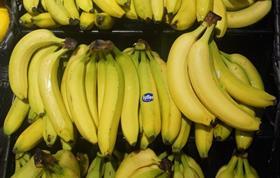
Fyffs has revealed that it completed its first ever corporate-wide Human Rights Impact Assessment in January 2020, aligning with the UN Guiding Principles on Business and Human Rights, through its partner BSR, while it also published its first ever Global Human Rights Policy and Statement.
As a result of the assessment, Fyffes Global Sustainability Steering Committee has endorsed the company’s Human Rights Mitigation and Management Plan, which provides a framework to manage, mitigate and help resolve identified human rights risks.
“Companies are now expected to conduct thorough due diligence on human rights to identify, prevent and mitigate the human rights-related risks or eliminate human rights risks across their supply chain and remediate any adverse human rights impacts they cause or to which they contribute,' said Jenny Vaughan, human rights director at BSR.
“BSR is pleased to have supported Fyffes in conducting its first company-wide human rights impact assessment and five country-level risk assessments, in accordance with the criteria and requirements of the UN Guiding Principles, which today provide the foundations for Fyffes overall Human Rights policy, strategy and management,' Vaughan noted. 'Fyffes is leading the way by bringing forward a deep knowledge of its salient human rights risks and has established a detailed action plan to mitigate residual risks and prevent human rights violations related to its activities.”
During the second half of 2019, BSR conducted desktop reviews of existing Fyffes policies and procedures and interviewed internal and external relevant stakeholders, including NGOs, employees and customers.
Fyffes chose five countries to do an in-depth analysis – Belize, Colombia, Costa Rica, the Dominican Republic, and Honduras. The countries were chosen due to their importance to Fyffes as well as their potential risk profile.
The Assessment highlights the 13 most relevant human rights risks for Fyffes, which reflect the challenges and realities of where Fyffes does business but also how Fyffes is managing or mitigating its response to those challenges. Our relevant human rights risks are outlined in the diagram.
According to BSR’s analysis, for five of the 13 most relevant identified risks – gender discrimination and gender-based violence; freedom of association and the right to collective bargaining; health and safety; working hours, wages and benefits and food safety and consumer health – Fyffes has already a 'robust' management system in place or is strengthening its existing processes to address discriminatory practices and increase visibility and oversight of the working conditions of contracted and temporary workers.
Fyffes said that it would follow up on BSR’s analysis, and would continue to monitor the issues and expand on the programmes.
Three priority areas emerged from the report where Fyffes has taken immediate action: ‘access to a grievance mechanism’, ‘child labour’ and ‘migrant worker labour violations and forced labour’.
Fyffes said that it had already implemented a global, independent grievance mechanism in April 2019, available in the language of its employees via telephone or online.
For its mitigation plan, Fyffes agreed to run a broader campaign internally to make sure all employees were aware of the hotline, while also testing the numbers in all markets and changing the numbers in three countries where the phone operator network was instable.
“Because of the severe negative impact of child labour on children, we do not tolerate the use of child or forced labour, nor exploitation of children in any of our own operations and in our agricultural supply chains,' explained Fyffes global director of sustainability Julie Cournoyer. 'Our assessments have yet to identify any specific instances of child labour in our own operations and we have systems in place to ensure our suppliers are taking adequate measures to prevent child labour.
'However, we will do more to work closely with smallholders in any instance of potential or actual cases of child labour. To this end, we have introduced a Child Labour Remediation Protocol so that we can act swiftly and sensitively if or when it occurs,' Cournoyer continued.
“With migrant worker issues, Fyffes has good practices in place already. But we‘re working on measures to ensure that workers are aware of their rights and their rights are upheld, especially in relation to the risk to Haitian migrants in the Dominican Republic.
“Fyffes has recently published its Global Human Rights Policy and Statement, which sets out our commitment to protecting the human rights of all our stakeholders, including our employees,' she added. 'This policy is brought to life through training and internal protocols.'
The full scope of Fyffes Human Rights Mitigation Plan includes:
- Establish and circulate Fyffes Global Child Labour Remediation Protocol
- Continue to engage with existing trade-unions and workers committees in good faith and train all managers on freedom of association
- Implement Fyffes Gender Equality Program, targets and gender-related training
- Provide training on security and community programs to reduce security threats
- Conduct community-needs assessments to identify environment and health-related issues and solutions
- Facilitate capacity-building in smallholder and own farm climate resilience
- Continue to engage with and support the Living Wage initiative
- Increase worker training and awareness of the Fyffes Ethics Hotline and extend to suppliers and stakeholders
- Partner with NGOs to reduce Haitian migrant worker vulnerability in Dominican Republic
Enjoyed this free article from Eurofruit Magazine and its team of editors? Don’t miss out on even more in-depth analysis, plus all the latest news from the fresh produce business. Subscribe now toEurofruit Magazine.



